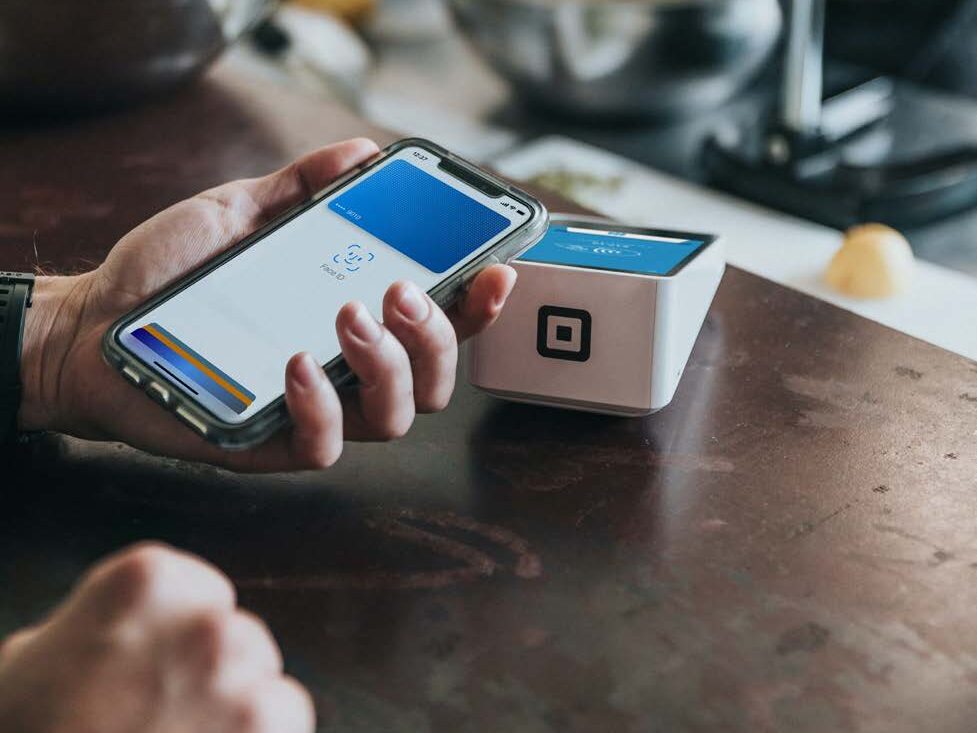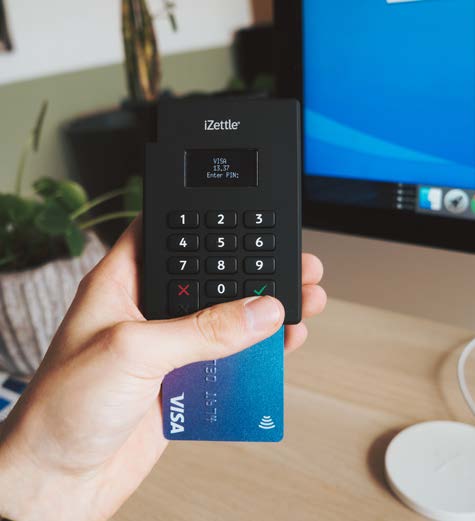Getting paid and protecting cash flow
Taking Online Payments
If you’re selling products or services through the web, you need to be able to take online payments.
Thankfully, it’s simple to set up a safe and secure payment gateway that protects your profits, and your customers’ cash
Processing payments online isn’t free, so you’ll need to make a choice.
You can use an established payment provider and pay slightly higher fees, or set-up your own merchant account and payment gateway and pay a lower amount.
Each has its own advantages and disadvantages, including set-up time and cost.

All-in-one providers make it easy to process payments, but over time the costs can add up.
How do online card payments work?
When a customer decides to buy something from you, they’ll be asked to checkout online. Online payment providers will take the card information, process the transaction, and deposit the money into your business account.
It’s a simple enough process, but there are rules and risks. It’s not free either, you’ll have to pay for the privilege of taking online business card payments.
As a business owner, you have two options:
- Use an all-in-one provider to process online payments for your business.
- Use a payment gateway to process card transactions, which are then deposited into your merchant business account.
Easy online payments
There are a whole host of online card payment providers that offer an all-in-one service. Sign-up to one of them, and you’ll be able to process business payments quickly and simply. You’ll pay a percentage of each transaction to the provider.
It can take literally minutes to set one up and start selling. But the benefits don’t end there. Online payment providers make it simple to integrate their payment processing technologies within your website and with your existing systems and technologies. You can even set up regular scheduled payments, for monthly orders, for example.
Initial set-up costs are low, and you won’t need to pay a monthly fee to use them either.
Some of the most popular easy online payment providers are:
Square is an award-winning online payment processing platform that lets you accept every kind of payment. Their online payment solution charges a flat fee of 1.75% for online transactions.
Stripe works with business of all sizes, from start-ups to seriously big ones, such as Booking.com. Costs are low, with Stripe charging 1.4% of each transaction plus 20p
iZettle is popular with businesses that sell both face-to-face and online. Their online payment solution charges a flat fee of 1.75% to process all online transactions.
PayPal You may have used PayPal when buying and selling through eBay, but the platform has grown to become one of the world’s most trusted online payment providers.
You can now use PayPal to accept payment for sales made through your own website. The PayPal brand is well known among customers, with millions of us already having an account. The payment process is safe and secure, with a tried and trusted dispute resolution function.

DIY payment processing
All-in-one providers make it easy to process payments, but over time the costs can add up.
It can also be difficult to integrate some payment providers within existing website, so there is another solution.
If you want to take the DIY route to accepting card payments online, you will need an internet merchant number and a secure payment page where customers can provide their card detail.
To process payments this way, you need a payment gateway and a merchant account.
Here’s what they are:
- A ‘merchant account’ is a separate online bank account that customers pay into using their credit or debit card. The money in your merchant account then gets transferred into your main bank account. You’ll pay a fee to your bank for the merchant account and the card processor, but this is typically less than you would pay a payment provider.
- A payment service provider (PSP) to process transactions, check that the customer can pay for the product or service and settle the transaction. The PSP provides this service and usually charges both a set-up fee and a per transaction fee.
Setting up your own merchant account
Merchant accounts are a special type of account that allows you to accept payment via credit or debit card.
The money sits in the merchant account until it›s transferred into your business bank account.
You’ll find that merchant accounts are offered by all the major high street banks, as well as challenger banks who are competing for a slice of this lucrative market.
Your merchant account doesn’t need to be the same bank as your business bank account, although it’s often simpler to set-up if that is the case.

THE PAYMENT GATEWAY CONNECTS YOU TO THE PROCESSOR NETWORKS THAT MANAGE TRANSACTIONS.
Choosing the best payment services provider
Once you’ve got your merchant account set up, you’ll need a payment gateway to process your online transactions. The payment gateway connects you to the processor networks that manage transactions.
Customers can submit their credit and debit card details, and the processor will check whether the charge is approved by the customer’s bank account. Once approved the processor submits the charge to the bank for payment.
Well-known payment services providers include Worldpay, SagePay and Sellerdeck.
Payment services providers offer a range of solutions for their clients. You may pay a single flat fee to process several transactions (£25 per month for up to 300 transactions, £50 for up to 3,000 transactions, for example), or you may have a fee arrangement that includes:
- an initial set-up fee
- a monthly fee
- a small authorisation fee each time a card is used for payment (even if the card is rejected)
- a transaction fee, usually as a percentage of the value of each transaction.
- Percentages can be different for different types of cards
- separate charges for security measures, such as an SSL certificate.
- fees for dealing with ‘chargebacks’ when a customer says the payment was fraudulent and other disputes.
What’s the best payment provider for my business?
Identifying the right payment processor isn’t simply about finding the cheapest option and going for that. Some of the other factors you should consider include:
- How easy is it to set up? Are you taking a DIY approach or using expert help? Have you checked that everything will work together?
- What customer support do you get? Are you happy with how any templates look? Will customers make payments from within your site, or on a third-party payment page?
- Is it safe for you and your customers? What payment security is provided? Does the supplier give you extra fraud protection?
- Can it process all payment types? What cards are accepted? Do you want to take other kinds of payments? Can the system handle digital wallets like Apple Pay? Do you take international payments in different currencies?
- Are the fees reasonable? What fees do you pay, and what will your total costs be? Are there any restrictions on payment size?
- Does it have a good reputation? Customers wary of online fraud will only use payment processing technologies that are safe, so go with a brand name.
- How soon do you get paid? How quickly will money paid by the customer be transferred into your bank account?
- What reporting tools does it have? What information does the system provide on transactions, fees, and payments?
- Is the system flexible enough? Will the solution cope as your business grows? How long are you locked into a contract for? How easy would it be to change supplier later?
Which online payment method is right for my business?
Processing online payments is, for many businesses, essential to survival. If you’re a Start-Up Business, then an all-in-one provider probably offers the best solution.
The ones within this feature all provide a great service at a reasonable cost and are safe and secure for both you and your customers. The higher transaction fees are offset by the simplicity of implementation and integration.



